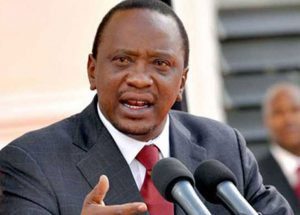 Kenyans will continue paying the 16 per cent Value Added Tax (VAT) on fuel products after President Uhuru Kenyatta rejected the Amended Finance Bill 2018 presented to him by National Assembly Speaker Justin Muturi.
Kenyans will continue paying the 16 per cent Value Added Tax (VAT) on fuel products after President Uhuru Kenyatta rejected the Amended Finance Bill 2018 presented to him by National Assembly Speaker Justin Muturi.
There were no immediate reasons given by the President on why he declined to sign the bill by MPs who wanted the increment suspended for two years.
A statement issued on Thursday night by State House Spokeswoman Kanze Dena said the President will address the nation later today following consultations with the leadership of the National Assembly.
“President Uhuru Kenyatta is set to address the Nation tomorrow following consultations on the VAT matter with the leadership of the National Assembly,” Dena said.
Sources said he will use the address to explain to Kenyans why declined to sign the bill.
The Energy Regulatory Commission has also failed to honour a court order that suspended the 16 per cent increment of fuel products, often saying it is yet to formally receive the orders that were issued by a High Court in Bungoma.
And following the new development, National Assembly Speaker Justin Muturi has called for a special sitting of MPs next week to deliberate on the matter.
In a special Gazette Notice, Muturi has scheduled the sittings for Tuesday and Thursday next week.
“Pursuant to the provisions of Standing Order 29 (3) of the Standing Orders of the National Assembly, it is notified for the information of the Members of the National Assembly and the general public that Special sittings of the Assembly shall be held in the National Assembly Chamber in the Main Parliament Buildings, Nairobi on Tuesday, 18th September, 2018 commencing at 2.30 p.m. and; on Thursday 20th September, 2018 at 9.30 am and at 2.30pm,” Muturi stated, “For purposes of notification of the message from the President in respect of his reservations to the Finance Bill, 2018 pursuant to Article 115 of the Constitution.”
MPs two weeks ago voted to extend the levy on petroleum products for two years but National Treasury went ahead to introduced the charge which has seen fuel prices rise to 130 shillings per litre for petrol and 100 shillings for kerosene.





